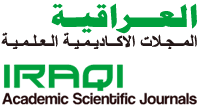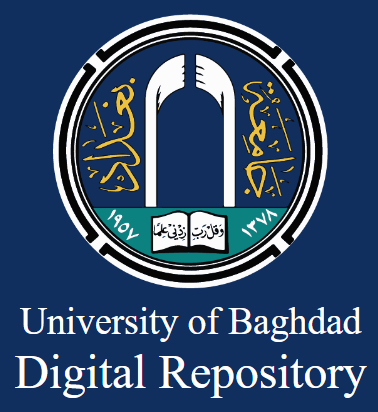The relationship of environmental factors to external television filming in Iraqi drama (the Speicher television trilogy as an example)
DOI:
https://doi.org/10.35560/jcofarts1290Keywords:
Effectiveness, Television Photography, Iraqi DramaAbstract
Photography is one of the most important pillars of a dramatic achievement, as the director relies on the photography process to convey an idea to the mind of the viewer. One of the most prominent problems that the photographer suffers from in outdoor photography is the climate and terrain and their factors that negatively affect the efficiency of the outdoor photography process. The research problem can be summed up by asking: The following: What are the problems that affect external filming of television work in the Iraqi environment? The importance of the research comes from highlighting the problems and obstacles facing the photographer during the outdoor photography process in the climatic environment.
The theoretical framework covered two sections, the first being interactive integration, and the second section: designing magazine covers, with indicators for this theoretical framework, the art of photography and its origins, television photography, outdoor photography and its types. The emergence and development of Iraqi television drama. The research procedures included the research community, research samples, and its tool. We followed by analyzing a selected film and concluded the research with results and conclusions, including:
1. Weak production capabilities and poor quality of outdoor photography equipment led to the inability to overcome unnatural environmental factors, such as outdoor photography locations in rugged and unstable areas.
2. Inaccurate choices of filming locations contributed to obstructing outdoor filming, as well as causing poor execution of the scenes visually and audio, as well as the rest of the other montage elements.
References
Al-Mehna, F. (1988). Radio and Television Programs. Baghdad: House of Wisdom Press.
Al-Najjar, S.-G. (2008). Film and Digital Photojournalism. Cairo: The Egyptian Lebanese House.
Alwan, I. (2008). Television Film and Video Films - Similarity in Form and Difference in Technology. Baghdad: College of Fine Arts, University of Baghdad, Al-Academy Journal, Issue 48.
Al-Zubaidi, M.-H. (2001). Taj Al-Arous from Jawaher Al-Qamoos. Kuwait: National Council for Culture, Arts and Literature.
Clark, C. (1968). Cinematography for Professionals. (A. R. Qalaj, Trans.) UAE: Ministry of Information and Culture - Cultural Administration.
Gaillard, P. (1983). Press Technology. Beirut: Oweidat Publications.
Issa, N. (2022). radio and television directing. Damascus: Syrian Virtual University Publications.
Jabouri, H.-G. (2022). The Aesthetic Data of Modern Technologies with the Diversity of Camera Movements in Digital Cinema. Baghdad: University of Baghdad, College of Fine Arts, Department of Cinema and Television Arts - Doctoral dissertation.
Khulusi, N. (1993). Articles on Television. Baghdad: General Cultural Affairs House.
Saleh, T. (2016). Cinematic Art Literature. Kuwait: Al-Janadriyah Publishing and Distribution.
Saliha, N. (2010). Theater between Art and Thought. Cairo: Hala Publishing and Distribution.
Salman, b. (2010). Photojournalism. Cairo: Dar Al-Thaqafiyyah Publishing.
Stashev, E. (B.T). television programs produced and directed. (A. Taher, Trans.) Cairo: Arab Register Foundation.
Thamer, R.-J. (1996). Levels Signifying the Visible and the Sensible in Optical Text. Baghdad: University of Baghdad, College of Fine Arts, doctoral thesis.
Downloads
Published
Issue
Section
License
Copyright (c) 2025 Zaid Ghazi Abbas

This work is licensed under a Creative Commons Attribution 4.0 International License.













